Signalian
PDF THINK TANK: CONSULTANT

- Joined
- Aug 18, 2015
- Messages
- 10,608
- Reaction score
- 305
- Country
- Location
The only thing harder than getting a new idea into the military mind, is to get an old one out."
(B. H. Liddell Hart)

I recall my first visit to the casualty ward of CMH to meet injured soldiers and the officers’ ward in CMH to visit wounded officers. Some had lost limbs, others maimed and bed-ridden for life. But almost all were looking ahead at what they could do despite their injuries and handicap. These were men with wounded bodies but hearts and a will of steel that was infinite!
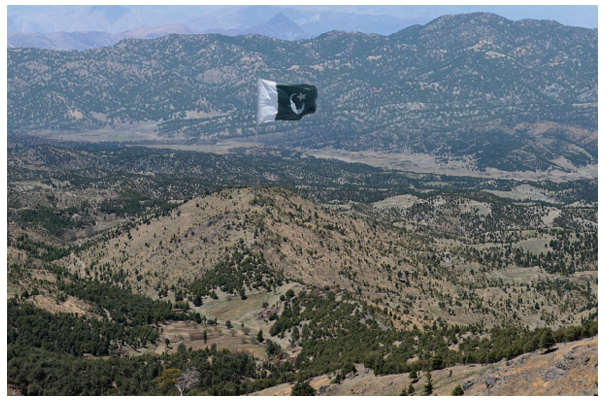
In my generation of soldiers, I was fortunate to spend a little more time in combat zones than most others, but obviously, less than some others – not by design, merely by default. However, when I total the entire period of my combat experience, I cannot go beyond three and a half years out of thirty odd.
Today, Pakistan Army’s young officers of ten years’ service have more combat experience than I.
When I was on the faculty of the Command and Staff College, Quetta, in 1997, I wrote a paper on ‘Why Peacetime Soldiers Cannot Produce Wartime Leaders’ and sent it to the Military Training Directorate at GHQ. It was highly appreciated but, none of my recommendations were heeded.
It seems that fortune has led us to an unending war, merely for me to have a glimpse of the Pakistani soldier and officer groomed by years of combat.
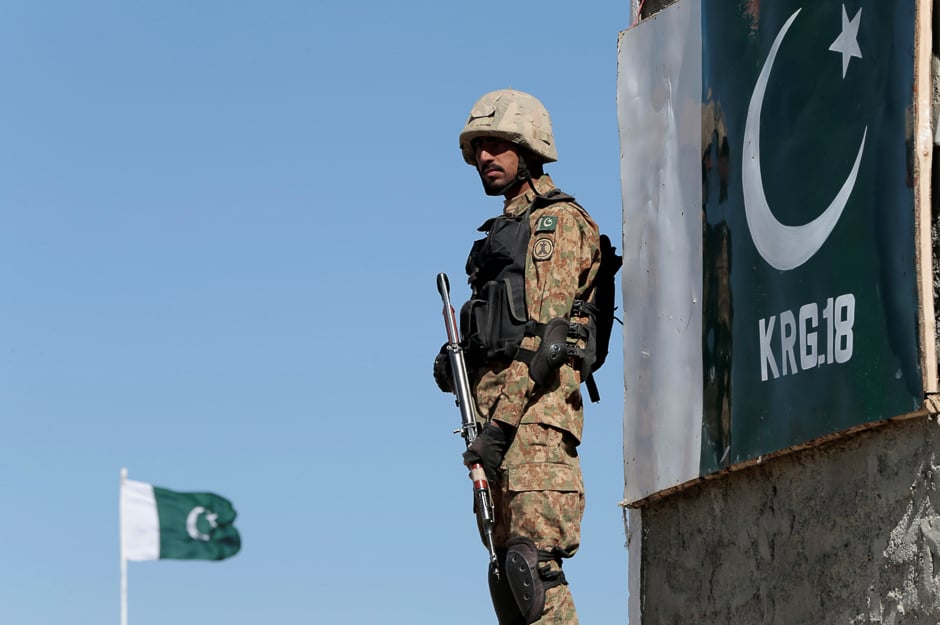
Now, it has been more than fifteen years since Pakistan entered the affray of GWOT, the Global War On Terrorand, over time, the number of troops in constant combat have risen to about 300,000.
The bulk of the troops in combat are, of necessity, infantry. But, despite the fact that almost two thirds of combat troops in the Pakistan Army are infantry, these are insufficient for both roles; defence of the international border and anti-terrorist operations.
I am proud of having been an ordinary soldier, not even a “has-been” but, a never-was in an army that has bred such proud soldiers in all ranks.
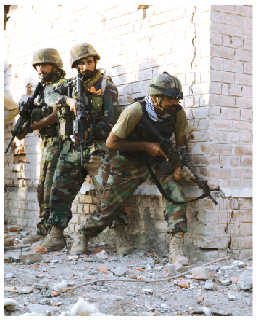
The point here is that, though not unanimous in their opinion, some psychiatrists are of the view that soldiers who see their superiors of high ranks expose themselves to combat, are less likely to suffer from battle fatigue and related subjects.
Consequently, all the “arms” in the army have been rotating to take turns in combat in what is called “Infantry Role” i.e., for a specified period, troops and officers from Armoured Corps, Artillery, Engineers, Signals, all go into battle as if they were infantry.

All infantry units and, to a slightly lesser degree, other units seem to be in combat zone endlessly. They are moved out from anti-guerrilla operations to be deployed at, either the LOC/Working Boundary between AJK and IOK or the international border.
A stint on border defence is considered peacetime station. It is during this period that units get to train troops.

I was not aware of the fact that there is an international index on Troops to Officers’ Casualty Ratio (TOCR), among other related indices, until it was pointed out to me one day in a discussion abroad, when I was a Lt Col. The context was that the Pakistani TOCR was very high and, therefore, the Pakistani officer was, by inference, naturally foolhardy or was trained to be so.
Even then, I protested this inference.
I am proud of having been an ordinary soldier, not even a “has-been” but, a never-was in an army that has bred such proud soldiers in all ranks.
But now, I have studied the subject. Yes, the Pakistani TOCR is high; it has always been. Until we entered GWOT, it was as high as 1:12 i.e., to every 12 soldiers we lost an officer. Now it has risen further; it is 1:9.
The point here is that, though not unanimous in their opinion, some psychiatrists are of the view that soldiers who see their superiors of high ranks expose themselves to combat, are less likely to suffer from battle fatigue and related subjects.

I am very proud of this because our young officer leads from the front; dies but not buckles!
Wherever the officers lead, the troops invariably follow. Where the officer merely commands, troops may still go but their performance is likely to be less enthusiastic. And where troops are always merely commanded, their enthusiasm will wane more and more.
During the Second World War, the American general George S. Patton slapped a soldier who had been admitted to hospital due to “battle fatigue”. Patton, being obviously unfamiliar with the reality of this disease, accused the soldier of malingering.
The hospital staff complained and it came to the notice of Patton’s superiors and Patton had to tender a public apology or lose his command. He apologized.
The point here is that, though not unanimous in their opinion, some psychiatrists are of the view that soldiers who see their superiors of high ranks expose themselves to combat, are less likely to suffer from battle fatigue and related subjects.
If this contention is true, then Patton may have been the victim of a verdict which was harsher than it could have been; merely because Patton was among the generals who also led.
Many of our today’s officers may have never heard of a “Mess-Night” or “Dinner Night”. They may have no appetite for attire and refined niceties and, may use their hands to feed themselves, instead of a fork or knife, they may even be incapable of small talk. But give them a weapon, give them a section to command and you can sleep well; confident that your country is well guarded.
But, when I learnt of this index, I also learnt of other related ones i.e., Battle Fatigue Ratio (BFR), Ratio of Suicide in Combat (RSC), etc.
Until this last experience, our wars had been too brief to result in such consequences. This experience has made up for lost centuries. And yet, we have an amazingly low ratio of those suffering from battle fatigue or related mental disorders; under 0.5%.

Many of our today’s officers may have never heard of a “Mess-Night” or “Dinner Night”. They may have no appetite for attire and refined niceties and, may use their hands to feed themselves, instead of a fork or knife, they may even be incapable of small talk. But give them a weapon, give them a section to command and you can sleep well; confident that your country is well guarded.
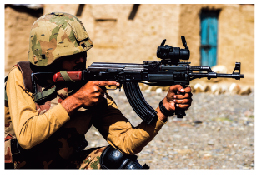
Admittedly, due to lack of awareness among troops, there may be some suffering from problems who have not reported it. But still, it is amazingly low.
There has not been a single instance of suicide in the combat zone. Some soldiers have committed suicide after returning home. Perhaps a couple of dozen. The majority among them could be suffering from either post-combat disorders or post-retirement domestic pressure. Even so, the percentage is closer to nil than to a number.
About two decades ago, a rather unfriendly neighbour was in a similar situation fighting numerous domestic insurgencies. Though considerably better off than we have been, their infantry units were rotating at the rate of 3:2:3 i.e., three years in combat zone, two years in a peace station and again three years in combat.
I recall the concerns being expressed by their general staff about, not only the increasing number of suicides among soldiers but also of “combat murders”. Murders of NCOs/JCOs/officers by soldiers during combat.
There is not a single recorded instance of murder in combat in the last fifteen years in the Pakistan Army.
Yes, indeed, this is a battle hardened army with veteran soldiers of all ranks.
Many of our today’s officers may have never heard of a “Mess-Night” or “Dinner Night”. They may have no appetite for attire and refined niceties and, may use their hands to feed themselves, instead of a fork or knife, they may even be incapable of small talk. But give them a weapon, give them a section to command and you can sleep well; confident that your country is well guarded.

I am the patient of an insatiable and incurable disease: curiosity. So, despite the fact that I shed my uniform a little under two decades ago, I have had occasion to see this army grow in stature and ability.
In 2009, when forces were assembling for the assault on South Waziristan, I spoke to few of the soldiers. My chief concern was that they were going to assault an area where their brethren resided. But they were grimly determined and sure of their being in the ‘right’. Even the Pashtun among them knew they were fighting an “enemy”.
I recall my first visit to the casualty ward of CMH to meet injured soldiers and the officers’ ward in CMH to visit wounded officers. Some had lost limbs, others maimed and bed-ridden for life. But almost all were looking ahead at what they could do despite their injuries and handicap. These were men with wounded bodies but hearts and a will of steel that was infinite!
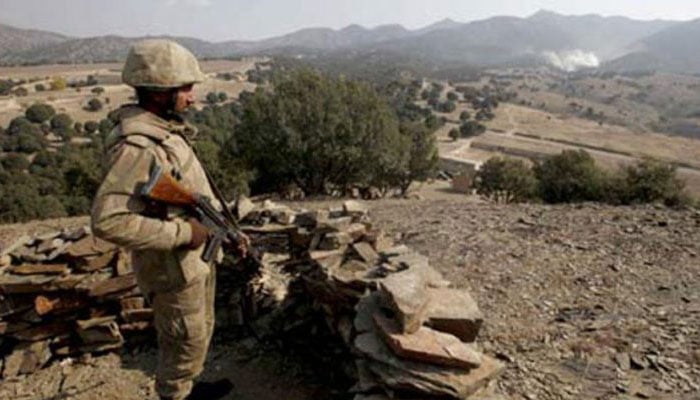
Those who seemed depressed, were being cajoled by other wounded. They could laugh at their own sufferings, share concerns of their fellows, and grieve their dead and yet, dream of their future. I was amazed and I still weep unashamedly as I narrate this heartwarming and chilling incident.
In 2014 and ’15 again I met soldiers and this time they could smile through their determination. These were genuine veterans.
I am proud of having been an ordinary soldier, not even a “has-been” but, a never-was in an army that has bred such proud soldiers in all ranks.
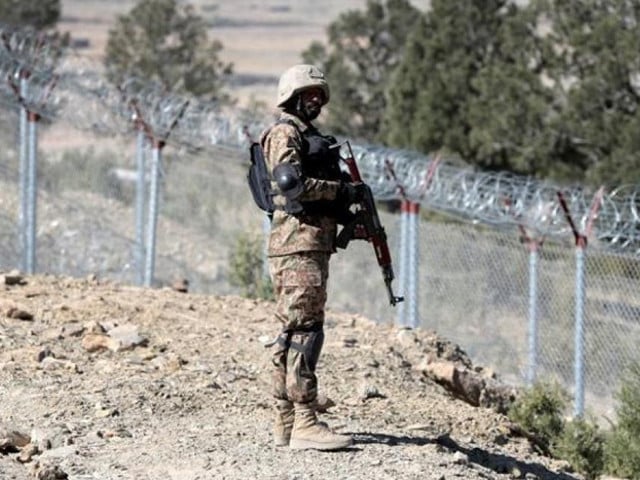
No wonder Gen (R) Raheel Sharif could warn our enemies not to take this army of veterans lightly. Gen Qamar Javed Bajwa could well do the same and say, “Don’t take this army of veterans lightly. These are the finest of fighting soldiers”.
While it would remain unsaid but implicit in the statement above is that it is led at each level, not commanded.
The writer is a retired Brigadier, former Vice Pesident and founder of the Islamabad Policy Research Institute (IPRI)
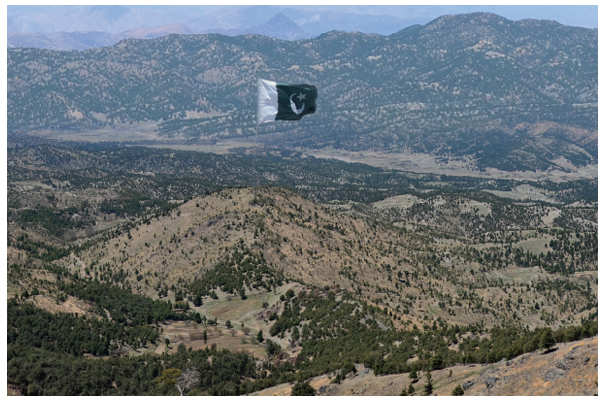
 www.hilal.gov.pk
www.hilal.gov.pk
E-mail: shaukatq@gmail.com
(B. H. Liddell Hart)

I recall my first visit to the casualty ward of CMH to meet injured soldiers and the officers’ ward in CMH to visit wounded officers. Some had lost limbs, others maimed and bed-ridden for life. But almost all were looking ahead at what they could do despite their injuries and handicap. These were men with wounded bodies but hearts and a will of steel that was infinite!

In my generation of soldiers, I was fortunate to spend a little more time in combat zones than most others, but obviously, less than some others – not by design, merely by default. However, when I total the entire period of my combat experience, I cannot go beyond three and a half years out of thirty odd.
Today, Pakistan Army’s young officers of ten years’ service have more combat experience than I.
When I was on the faculty of the Command and Staff College, Quetta, in 1997, I wrote a paper on ‘Why Peacetime Soldiers Cannot Produce Wartime Leaders’ and sent it to the Military Training Directorate at GHQ. It was highly appreciated but, none of my recommendations were heeded.
It seems that fortune has led us to an unending war, merely for me to have a glimpse of the Pakistani soldier and officer groomed by years of combat.

Now, it has been more than fifteen years since Pakistan entered the affray of GWOT, the Global War On Terrorand, over time, the number of troops in constant combat have risen to about 300,000.
The bulk of the troops in combat are, of necessity, infantry. But, despite the fact that almost two thirds of combat troops in the Pakistan Army are infantry, these are insufficient for both roles; defence of the international border and anti-terrorist operations.
I am proud of having been an ordinary soldier, not even a “has-been” but, a never-was in an army that has bred such proud soldiers in all ranks.

The point here is that, though not unanimous in their opinion, some psychiatrists are of the view that soldiers who see their superiors of high ranks expose themselves to combat, are less likely to suffer from battle fatigue and related subjects.
Consequently, all the “arms” in the army have been rotating to take turns in combat in what is called “Infantry Role” i.e., for a specified period, troops and officers from Armoured Corps, Artillery, Engineers, Signals, all go into battle as if they were infantry.

All infantry units and, to a slightly lesser degree, other units seem to be in combat zone endlessly. They are moved out from anti-guerrilla operations to be deployed at, either the LOC/Working Boundary between AJK and IOK or the international border.
A stint on border defence is considered peacetime station. It is during this period that units get to train troops.

I was not aware of the fact that there is an international index on Troops to Officers’ Casualty Ratio (TOCR), among other related indices, until it was pointed out to me one day in a discussion abroad, when I was a Lt Col. The context was that the Pakistani TOCR was very high and, therefore, the Pakistani officer was, by inference, naturally foolhardy or was trained to be so.
Even then, I protested this inference.
I am proud of having been an ordinary soldier, not even a “has-been” but, a never-was in an army that has bred such proud soldiers in all ranks.
But now, I have studied the subject. Yes, the Pakistani TOCR is high; it has always been. Until we entered GWOT, it was as high as 1:12 i.e., to every 12 soldiers we lost an officer. Now it has risen further; it is 1:9.
The point here is that, though not unanimous in their opinion, some psychiatrists are of the view that soldiers who see their superiors of high ranks expose themselves to combat, are less likely to suffer from battle fatigue and related subjects.
I am very proud of this because our young officer leads from the front; dies but not buckles!
Wherever the officers lead, the troops invariably follow. Where the officer merely commands, troops may still go but their performance is likely to be less enthusiastic. And where troops are always merely commanded, their enthusiasm will wane more and more.
During the Second World War, the American general George S. Patton slapped a soldier who had been admitted to hospital due to “battle fatigue”. Patton, being obviously unfamiliar with the reality of this disease, accused the soldier of malingering.
The hospital staff complained and it came to the notice of Patton’s superiors and Patton had to tender a public apology or lose his command. He apologized.
The point here is that, though not unanimous in their opinion, some psychiatrists are of the view that soldiers who see their superiors of high ranks expose themselves to combat, are less likely to suffer from battle fatigue and related subjects.
If this contention is true, then Patton may have been the victim of a verdict which was harsher than it could have been; merely because Patton was among the generals who also led.
Many of our today’s officers may have never heard of a “Mess-Night” or “Dinner Night”. They may have no appetite for attire and refined niceties and, may use their hands to feed themselves, instead of a fork or knife, they may even be incapable of small talk. But give them a weapon, give them a section to command and you can sleep well; confident that your country is well guarded.
But, when I learnt of this index, I also learnt of other related ones i.e., Battle Fatigue Ratio (BFR), Ratio of Suicide in Combat (RSC), etc.
Until this last experience, our wars had been too brief to result in such consequences. This experience has made up for lost centuries. And yet, we have an amazingly low ratio of those suffering from battle fatigue or related mental disorders; under 0.5%.

Many of our today’s officers may have never heard of a “Mess-Night” or “Dinner Night”. They may have no appetite for attire and refined niceties and, may use their hands to feed themselves, instead of a fork or knife, they may even be incapable of small talk. But give them a weapon, give them a section to command and you can sleep well; confident that your country is well guarded.

Admittedly, due to lack of awareness among troops, there may be some suffering from problems who have not reported it. But still, it is amazingly low.
There has not been a single instance of suicide in the combat zone. Some soldiers have committed suicide after returning home. Perhaps a couple of dozen. The majority among them could be suffering from either post-combat disorders or post-retirement domestic pressure. Even so, the percentage is closer to nil than to a number.
About two decades ago, a rather unfriendly neighbour was in a similar situation fighting numerous domestic insurgencies. Though considerably better off than we have been, their infantry units were rotating at the rate of 3:2:3 i.e., three years in combat zone, two years in a peace station and again three years in combat.
I recall the concerns being expressed by their general staff about, not only the increasing number of suicides among soldiers but also of “combat murders”. Murders of NCOs/JCOs/officers by soldiers during combat.
There is not a single recorded instance of murder in combat in the last fifteen years in the Pakistan Army.
Yes, indeed, this is a battle hardened army with veteran soldiers of all ranks.
Many of our today’s officers may have never heard of a “Mess-Night” or “Dinner Night”. They may have no appetite for attire and refined niceties and, may use their hands to feed themselves, instead of a fork or knife, they may even be incapable of small talk. But give them a weapon, give them a section to command and you can sleep well; confident that your country is well guarded.

I am the patient of an insatiable and incurable disease: curiosity. So, despite the fact that I shed my uniform a little under two decades ago, I have had occasion to see this army grow in stature and ability.
In 2009, when forces were assembling for the assault on South Waziristan, I spoke to few of the soldiers. My chief concern was that they were going to assault an area where their brethren resided. But they were grimly determined and sure of their being in the ‘right’. Even the Pashtun among them knew they were fighting an “enemy”.
I recall my first visit to the casualty ward of CMH to meet injured soldiers and the officers’ ward in CMH to visit wounded officers. Some had lost limbs, others maimed and bed-ridden for life. But almost all were looking ahead at what they could do despite their injuries and handicap. These were men with wounded bodies but hearts and a will of steel that was infinite!

Those who seemed depressed, were being cajoled by other wounded. They could laugh at their own sufferings, share concerns of their fellows, and grieve their dead and yet, dream of their future. I was amazed and I still weep unashamedly as I narrate this heartwarming and chilling incident.
In 2014 and ’15 again I met soldiers and this time they could smile through their determination. These were genuine veterans.
I am proud of having been an ordinary soldier, not even a “has-been” but, a never-was in an army that has bred such proud soldiers in all ranks.

No wonder Gen (R) Raheel Sharif could warn our enemies not to take this army of veterans lightly. Gen Qamar Javed Bajwa could well do the same and say, “Don’t take this army of veterans lightly. These are the finest of fighting soldiers”.
While it would remain unsaid but implicit in the statement above is that it is led at each level, not commanded.
The writer is a retired Brigadier, former Vice Pesident and founder of the Islamabad Policy Research Institute (IPRI)

The Pakistani Soldier Today
"The only thing harder than getting a new idea into the military mind, is to get an old one out." (B. H. Liddell Hart) I recall my first visit to the casualty ward of CMH to meet injured soldiers and the officers’ ward in CMH to visit wounded officers. Some had lost limbs, others maimed and...
E-mail: shaukatq@gmail.com







